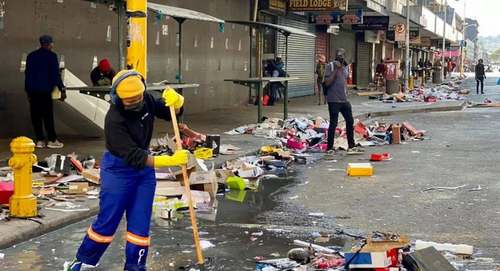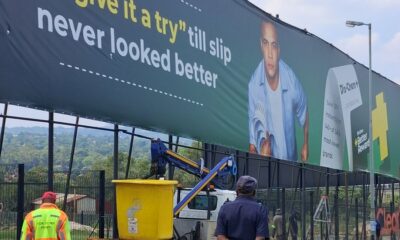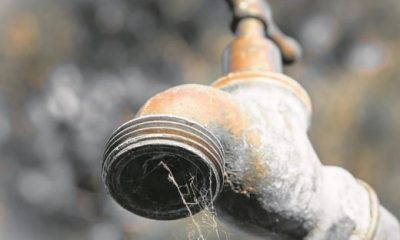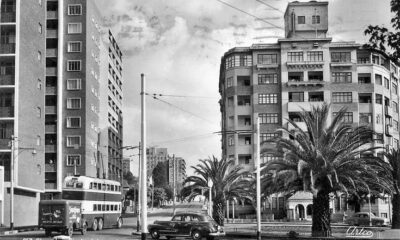411
One Million Kilograms of Trash Removed from Joburg CBD, But Locals Say It Made No Difference

Johannesburg’s inner city has seen over one million kilograms of trash removed since the beginning of 2024, but many residents remain unconvinced that the municipal blitz has delivered any real change.
Weekly service delivery drives, launched under the leadership of Johannesburg Mayor Dada Morero, have focused on improving conditions in the CBD by removing waste, repairing infrastructure, and enforcing by-laws. Yet for locals living and working in the area, the results are still disappointing.
“It looks good on the pictures,” said ActionSA councillor Zark Lebatlang, “but in terms of a sustainable programme to deal with the issue of cleaning up the CBD, there is no clear impact.”
A Massive Effort, But a Drop in the Bucket
The clean-up campaign, operating under the slogan “Reimagining Joburg through the eyes of residents,” targets not only trash but also potholes, broken streetlights, and hijacked buildings. According to the city, Pikitup has removed over 1,000 tonnes of waste from known hotspots like Marshalltown.
But considering the greater Johannesburg region produces 1.6 billion kilograms of waste every year, this is only a fraction of the city’s broader problem.
Other entities have also played their part:
-
Johannesburg Roads Agency: cleared 150+ stormwater drains and repaired 100+ potholes
-
City Power: repaired over 500 streetlights, disconnected over 200 illegal connections
-
City Parks: cleared overgrown vegetation
-
Johannesburg Water: attended to leaks and pipe bursts
-
Social Development: relocated displaced people to shelters
Even with all this, many in the CBD say the effort has failed to make a noticeable impact.
Shop Owners and Traders Under Fire
Lebatlang argues that spaza shop owners and informal traders are among the primary contributors to the ongoing litter problem. He criticized the lack of regulation and the habitual dumping of waste in alleys and on street corners.
“You fine them, you close down their shops, you ensure they are following environmental regulations,” he said. “You need to be aggressive.”
He also called for a return to former Mayor Herman Mashaba’s “A Re Sebetseng” programme, which encouraged communities to take ownership of keeping their spaces clean.
Law Enforcement Hits a Wall
The Johannesburg Metropolitan Police Department (JMPD) has also played a visible role in the inner-city operations, conducting 36 joint enforcement operations and inspecting over 330 properties, including spazas, corner shops, repair garages, and hijacked high-rises.
More than 500 violations were recorded, leading to the shutdown of non-compliant buildings and the confiscation of illegal goods.
“Many buildings were found operating without approved plans or with illegal utility connections,” said the municipality in a weekend update.
Still, issues like crime, lawlessness, and non-compliance remain entrenched in parts of the CBD, with no long-term solution yet in sight.
Residents Demand Long-Term Action
For those who live in the heart of Johannesburg, the recent initiatives are a start—but they fall short of tackling the city’s core issues.
“If you’re not going to overhaul law enforcement, security, and service delivery,” Lebatlang warned, “you’re still just going to scratch the surface.”
{Source: The Citizen}
Follow Joburg ETC on Facebook, Twitter , TikTok and Instagram
For more News in Johannesburg, visit joburgetc.com



























